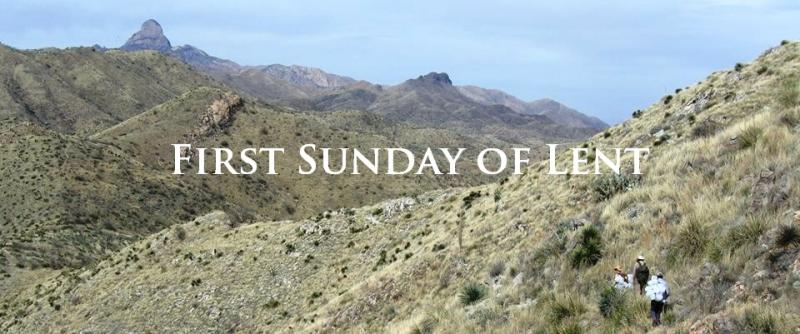
“Jesus said in reply, ‘It is written: ‘One does not live by bread alone, but by every word that comes forth from the mouth of God.’”
Matthew 4:4
Download the PDF version of our 2017 Lenten Reflection Guide: A Journey with Gospel Nonviolence
We are not alone on the journey
Who was Dayani Crystal? The body of an unidentified migrant was found in the Arizona desert a few years ago with this name tattooed across his chest. The U.S. Border Patrol only knew that he was a man who died while attempting to cross the U.S.-Mexico border through treacherous desert and mountain terrain.
But the documentary Who was Dayani Crystal? shows that he was much more than that – a member of a family and community in Honduras that is suffering and desperate to escape death from poverty and gang violence. And now Dayani Crystal is forever part of a full-blown humanitarian catastrophe as one of more than 7,000 “border crosser deaths” in the desert since the U.S. began to seal off easy-to-cross urban areas in the borderlands in 1994.
In this week’s Gospel reading Jesus goes to the desert to fast for 40 days. In the photo above, volunteers from the humanitarian group No More Deaths/No Más Muertes are carrying water to some of the most remote trails to help migrants like Dayani in the desert in Arizona. While in the desert, the devil visits Jesus and tempts him with promises of materialism and power. Jesus rejects the devil’s offers and declares that he will serve and worship only God. In our contemporary world, the devil tempts us with materialism and power and we are left with violence.
We enable structural violence – injustice and exploitation built into our social systems. These include the violence of economic inequality, racism, sexism, environmental destruction, militarism, and immigration policy.
We are blinded by cultural violence – prevailing attitudes, beliefs, and paradigms that justify and normalize structural violence.
And we inflict direct violence – war, murder, assault, verbal attacks – that grows out of cultural and structural violence.
Within the crisis of violence along the U.S.-Mexico border is a voice for peace: Pietro Ameglio in Mexico, who in his youth was a student of Maryknoll Father Don Hessler and who attended the Nonviolence and Just Peace conference in Rome last year. In 2011, Pietro organized demonstrations for families of the dead and missing persons during ongoing violence in Mexico. The public witness spurred related demonstrations in 31 Mexican cities and 17 cities around the world. “The movement of victims and massive public denunciations made visible the dignity of these families,” Pietro said, “and the falsehood of the ‘war on drugs.’”
Questions for Reflection
Where do you see human dignity needing to be made more visible in your community?
In what way can you respond to this need during Lent?
Prayer
We travel in deserts and despair as we focus on how Christ was crucified.
And is crucified in the world today.
We agree to make this journey, this pilgrimage, and to leave life as usual, business as usual, to pay attention, to be present to pain and suffering.
The journey to the Light of Easter can only go this way.
We choose to learn this hard truth, to accept the ashes, to witness the darkness, to walk the way of the cross as it happens in our world.
Let us journey together, open to the world, so we may be renewed and help bring to all the renewal of Resurrection. Amen.
–“Prayer on the Lenten Journey,” Education for Justice, a project of Center for Concern, https://educationforjustice.org/.
Fast
Consider letting go of habits that prevent you from listening without being defensive and speaking without judgement.
Action
Host a viewing of Who was Dayani Crystal? Gather with others to ask: How might the Holy Spirit be calling us to respond? Watch online: http://www.hulu.com/watch/685371; or organize a public screening: http://whoisdayanicristal.com/
A Maryknoll Missioner says…
“There’s a lot of violence in the community [of Las Delicias in El Salvador] and our soccer program, called Playing for Peace, gives kids a safe alternative to the street. The youth join gangs because they want to belong to a group. Our program gives them a sense of belonging – but in a more positive environment.”
–LARRY PARR, Maryknoll Lay Missioners, El Salvador
